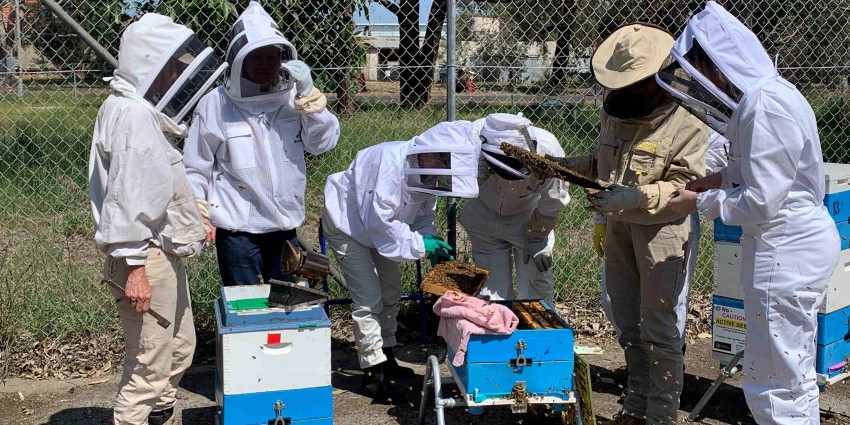
While the national varroa eradication response in the eastern states has transitioned to management, the pest has not been detected in WA.
The new Department of Primary Industries and Regional Development (DPIRD) officers are funded by the national Transition to Management Plan, supported by the Commonwealth, State and Territory governments and agricultural industries affected by the pest.
The team will complement DPIRD’s efforts to reduce the risk of varroa mite from entering WA, including a Statewide surveillance network and strict border control measures, and provide bee keepers with the knowledge needed to identify and manage this pest.
DPIRD senior development officer Rosalie McCauley said the development officers will support recreational and commercial bee keepers to help improve monitoring and understand the challenges of bee keeping with this pest.
“The team recently completed intensive training delivered by the Transition to Management team, including the latest advice for biosecurity measures, management and science on varroa mite,” she said.
“The officers will assist bee keepers throughout the regions to provide information and practical assistance to improve surveillance.
“This includes providing nationally developed tailored resources, face-to-face training sessions and working in the apiary with bee keepers in small groups.”
A national pollination industry coordinator will work with pollination-dependent industries to address concerns, knowledge gaps and future needs related to varroa mite.
Additional assistance and resources will be provided through updates to the Australian Honey Bee Industry Biosecurity Code of Practice and the Bee Biosecurity Manual.
“Varroa mite remains a key threat to Australia's honey and honey bee pollination industries and it’s important for government, hobbyists and industry to continue to work together to manage this risk,” Dr McCauley said.
“WA bee keepers are encouraged to remain vigilant, regularly check their hives for pests and diseases and report suspect observations to support early detection.”
Reporting suspect varroa mites is required by law. All detections of declared bee pests must be immediately reported by calling the Exotic Plant Pest hotline 1800 084 881.


